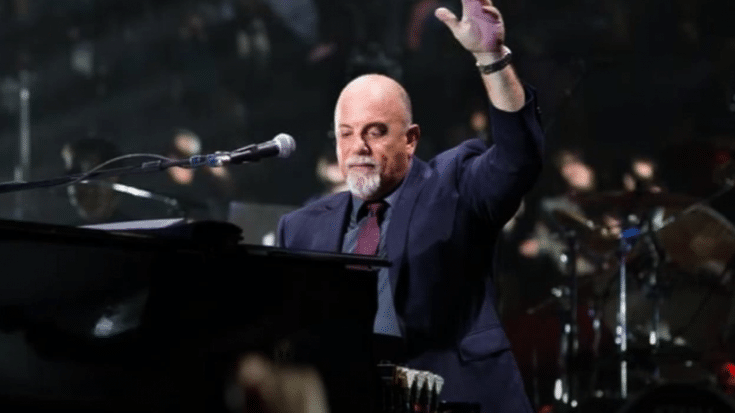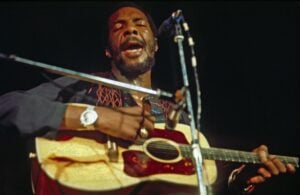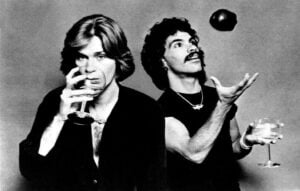10 Famous Rockstars You Didn’t Know Are Actually Poor Now

via Danny - Billy Joel Archivist / YouTube
It’s easy to think every rock star is swimming in cash. They’ve got chart-topping songs, sold-out tours, magazine covers, and viral moments splashed all over the internet. With that much fame and exposure, you’d assume their bank accounts are just as loud as their amps.
But that’s not always the case. Sure, plenty of rock stars have raked in millions, but fame doesn’t always come with financial wisdom. The rock ‘n’ roll lifestyle—fast, flashy, and full of excess—doesn’t exactly encourage smart money moves. And let’s not forget how unpredictable the music industry can be. One bad deal, a dishonest manager, or simply not paying attention to finances can lead to serious trouble.
While some of these musicians aren’t broke in the everyday sense, their bank balances are often a far cry from what fans might expect. Whether they lost it all or just ended up with way less than they should’ve, here are some rock stars whose money situations might seriously surprise you.
Cat Power
Chan Marshall—better known as Cat Power—became one of indie music’s biggest success stories in the late ’90s and early 2000s. By 2012, she was a well-respected artist, selling out shows and even landing a Top 10 album on the Billboard chart. For fans and fellow musicians alike, she seemed like a shining example that an indie artist could carve out a thriving, financially stable career.
That’s why it came as a shock when Cat Power canceled her 2012 European tour—not for creative reasons, but because she had gone bankrupt. The situation was heartbreaking but not without context. Marshall had battled addiction and mental health challenges, and some of those struggles led to hospitalizations and canceled performances. On top of that, she had poured much of her savings into creating Sun, the very album that brought her chart success. Then came another blow: she developed angioedema, a serious immune disorder that causes swelling in the face, tongue, and throat.
Thankfully, she pulled through and seems to be in a better place today, with new music and tours continuing to win over fans.
Billy Joel
Billy Joel may have wrapped up his legendary residency at Madison Square Garden in 2024 and continues to enjoy a long list of hit songs and success, but even music legends aren’t immune to betrayal—especially when it comes from someone close. Joel learned this the hard way when his former manager, Frank Weber, embezzled tens of millions of dollars from him.
In 1989, Joel sued Weber for a staggering $90 million—$30 million to recover the money Weber allegedly misused, and another $60 million in punitive damages for the many ways he defrauded the artist. According to the lawsuit, Weber handed out massive loans in Joel’s name to his own businesses, lost over $10 million in bad investments, and even mortgaged Joel’s copyrights—without telling him. All the while, he cleverly made sure the paperwork Joel saw painted a completely false picture. Meanwhile, Weber was pocketing $20 million in commissions.
Unfortunately, justice was hard to come by. Weber filed for bankruptcy, and the case was settled out of court. To make matters worse, Joel’s ex-wife Elizabeth—Weber’s sister—had also once managed his career. As Joel later joked, “I hooked up with the Borgias!”
Ron Isley
Ron Isley, frontman of the legendary Isley Brothers—known for classics like “Twist and Shout”—may have a golden voice, but when it comes to paying taxes, his record is anything but smooth. In 2006, Isley was hit with five counts of tax evasion and one count of willfully failing to file a tax return. The result? A prison sentence of three years and one month, along with a hefty $3.1 million bill in back taxes. The judge didn’t hold back, calling him a “serial tax avoider” (via Billboard).
But this wasn’t a one-time mistake. Isley first filed for bankruptcy back in 1984. By 1997, the IRS had had enough—they seized his property, including multiple cars and a yacht. Even after being discharged from bankruptcy in 2001, he skipped filing returns for four years and cheated on his 2002 taxes.
While his 2006 sentence was supposed to mark a turning point, by 2013 he was still clashing with the IRS. In fact, his tax troubles stretch all the way back to 1971. One thing’s for sure—Ron Isley may not be great at taxes, but at least he’s consistent.
Members of Grizzly Bear
Grizzly Bear may have seemed like an indie success story after breaking through in 2006. By 2012, they were opening for Radiohead, getting praised by Jay-Z, and hearing their music in Super Bowl ads. But behind the scenes, things weren’t nearly as glamorous. In an interview with Vulture, the band revealed that even with critical acclaim and sold-out shows, financial stability remained out of reach.
Singer Ed Droste shared that they had gone from “eating beef jerky from the gas station for protein” to bigger stages—but not bigger paychecks. “Bands appear so much bigger than they are,” he explained, noting that the decline in record sales made it hard to get ahead. Even licensing songs only brought short-term relief, like “Yay, I don’t have to pay rent for two months.”
Touring was their main income source, but after paying managers, agents, venues, and staff, not much was left. To save money, they kept hotel stays rare and treated the band like a “risky small business.” As of late 2024, Grizzly Bear hasn’t released anything new since 2019, though reunion rumors still linger.
Sly Stone
You might know the songs “Dance to the Music” and “Everyday People,” but you may not know much about the man behind them—Sly Stone. As the frontman and creative force behind Sly & the Family Stone, he helped shape the sound of the late ’60s and early ’70s. With hits that left a permanent mark on pop culture, you’d think Stone would be sitting comfortably among music legends with deep pockets. But by 2011, he was living in a camper van.
Just a few years earlier, around 2007, Stone was still enjoying a superstar lifestyle—complete with a big house, a vineyard in Napa Valley, and a fleet of cars. But years of heavy drug use and financial troubles, including a $50 million lawsuit against his former manager, eventually took their toll. While Stone claimed he liked his nomadic setup, reports suggested his situation was far from glamorous.
Thankfully, things have gotten a bit better. Thanks to the Music Modernization Act, which updated copyright laws for the streaming era, Stone finally started receiving long-overdue royalty payments—offering a small but welcome financial boost.
Willie Nelson
Willie Nelson may be one of country music’s most iconic and enduring figures, but his bank account tells a different story than you might expect. While he’s still a millionaire, Nelson’s estimated net worth of $25 million seems surprisingly modest when compared to the hundreds of millions—or even billions—earned by other music legends.
Much of Nelson’s financial trouble can be traced back to a massive battle with the IRS. At one point, he was slapped with a jaw-dropping $16.6 million tax bill. His lawyer managed to negotiate it down to $6 million, but that didn’t exactly make it easy to pay. Things got so bad that in 1990, the IRS seized nearly everything Nelson owned. Stuck in tax-debt limbo, he even released an album titled Who’ll Buy My Memories? The IRS Tapes to raise money and help pay off what he owed.
Even without the IRS in the picture, Nelson’s money management wasn’t exactly tight. Known for his generous nature and large entourage, he often gave freely to those around him—sometimes to the point where he was left with very little himself.
The Verve
The Verve, led by frontman Richard Ashcroft, hit it big in 1997 with their now-iconic single “Bitter Sweet Symphony.” The track, built around a short sample from an orchestral version of The Rolling Stones’ “The Last Time,” seemed like a sure win for the British rock band. But that brief sample led to one of music’s most infamous royalty disputes.
The sample was taken from The Rolling Stones Songbook, a 1965 collection of easy-listening covers dreamed up by the Stones’ then-manager, Andrew Loog Oldham. When the song blew up, Ashcroft was contacted by Alan Klein, the Stones’ former manager who still controlled the rights to their early material. Klein demanded 100% of the royalties, and facing a costly legal battle, the band gave in. Ashcroft ended up with just $1,000.
Years later, in a 2018 interview, Ashcroft said, “Someone stole god knows how many million dollars off me in 1997, and they’ve still got it.” Thankfully, in 2019, Jagger and Richards signed over the songwriting credits to Ashcroft—a “magnanimous gesture” that likely returned some of the estimated $5 million he lost.
Norman Greenbaum
If anyone fits the label of a classic one-hit wonder, it’s Norman Greenbaum. His 1969 hit “Spirit in the Sky” shot him to fame—but just as quickly, the spotlight faded. Despite high hopes for follow-up success, none of his later songs caught on, and by 1980, Greenbaum had walked away from music altogether. “I was broke, what else could I do?” he told The New York Times in 2006, explaining why he had taken a job as a restaurant cook.
But everything changed in 1987, when Spirit in the Sky was licensed for the movie Maid to Order. Then came its memorable use in Apollo 13 with Tom Hanks, and the song suddenly became a go-to pick for movies, TV shows, and commercials. The royalties began to roll in, and Greenbaum was finally able to leave his day job. “Well, it’s not like it’s made me rich, as you can see,” he said, gesturing to his modest two-bedroom apartment. “But because of ‘Spirit in the Sky,’ I don’t have to work.”
As he told Rolling Stone in 2020, “I’m blown away by the whole thing, really… It’s something as a performer you appreciate very much.”
Ryan Adams
Ryan Adams rose to fame after leaving alt-country band Whiskeytown and launching a solo career with his 2000 debut Heartbreaker, earning critical praise and a growing fanbase. His popularity climbed further during his high-profile marriage to singer and actress Mandy Moore. But everything changed in 2019, when The New York Times published an exposé in which seven women—including Moore—accused Adams of psychological abuse. The fallout was swift, and his once-thriving career quickly collapsed.
By 2021, Adams was in a tough spot both personally and financially. In a now-deleted Instagram post, he publicly pleaded for a new record deal. “I know I’m damaged goods,” he wrote, according to NME. “I’m months from losing my label, studio and my home / I just really want a second chance to make some music…” He also confessed, “I’m 46 and scared I’m gonna be living in my sister’s basement.” In an interview with Los Angeles Magazine, he admitted he was even thinking of selling his publishing rights to avoid losing his rented home.
In 2024, Adams began working his way back, releasing several new albums and launching a solo tour in hopes of rebuilding his career.
Mick Taylor
Mick Taylor was just 20 when he stepped into rock history, joining The Rolling Stones as their new lead guitarist in 1969 after Brian Jones was fired — and tragically died soon after. Taylor’s bluesy style helped define the band’s golden era, contributing to classic albums like Let It Bleed, Sticky Fingers, and Exile on Main Street. But in 1974, he suddenly walked away from it all.
Taylor’s solo career never reached the heights of his Stones days. In a 2009 Daily Mail interview, he expressed frustration about not receiving proper credit or royalties for his work. “Mick [Jagger] had promised to give me some credit for some of the songs — and he didn’t,” he said. He also claimed he hadn’t been paid by the Stones since 1982 and was struggling to pay bills.
His manager, Jeff Allen, pushed back in NME, saying he was in “shock, horror and disbelief” at how Taylor was portrayed, noting the guitarist’s home was under renovation. Still, while Taylor may not be broke, he’s nowhere near the financial league of Jagger or Richards.
Ace Frehley
Ace Frehley helped launch KISS into rock legend status as one of the band’s original members, complete with wild makeup, pyrotechnics, and shredding guitar solos. He played with the group from 1973 until the early 1980s, when he decided to step away and try his luck as a solo artist. Though the departure was rocky, Frehley eventually reunited with Gene Simmons, Paul Stanley, and Peter Criss in 1996 for a highly anticipated reunion tour. He stuck around until 2001 and occasionally returned for guest performances afterward.
Unfortunately, his post-KISS life wasn’t exactly glamorous. His solo career didn’t hit the same high notes, and his financial troubles quickly piled up. In 2013, The Journal News (via Daily Mail) reported that Frehley hadn’t paid his mortgage in two years and was facing foreclosure. On top of that, he owed nearly $20,000 in back taxes.
Looking back, Frehley had regrets. “It was a stupid decision when I look back now cause I lost millions of dollars,” he confessed during an appearance on the Talk Is Jericho podcast, according to Loudwire.
Glen Matlock
Glen Matlock, the original bass player for the Sex Pistols, helped shape punk rock history—but missed out on much of the fame and chaos when he was replaced by Sid Vicious in 1977. That early exit came with a hefty price tag. Speaking to The Telegraph in 2014, Matlock estimated that walking away from the band cost him “somewhere in the low millions.”
Though he still received songwriting royalties from the band’s landmark album Never Mind the Bollocks, those earnings didn’t go unnoticed. “In 1983 the taxman came knocking for £35,000 to £40,000, which I didn’t have,” Matlock recalled. He had to remortgage his flat just to cover the debt. Looking back, he wished he’d handled it differently. “Then I wouldn’t have had a massive mortgage on my shoulders at punitive interest rates when I wasn’t working,” he said.
Despite the bumps, Matlock stayed active in music. In 2022, he joined Blondie and hit the road again. As for long-term goals? In his words: “To pay off my mortgage.”
Cass McCombs
Cass McCombs might not be a mainstream celebrity, but in indie rock circles, he’s earned plenty of respect. Since the early 2000s, he’s dropped a steady stream of albums, toured with acts like Arcade Fire and The War on Drugs, and even collaborated with DJ Khaled. His producer, Rob Schnapf—who’s worked with Elliott Smith and Beck—adds to McCombs’ credibility in the music scene.
But despite all this, McCombs isn’t exactly rolling in cash. In a revealing chat with Vulture, he shared, “I don’t really understand how any musician can afford to stay in one place. We don’t make enough money to afford an apartment.” Streaming may get his music to fans around the world, but it hasn’t made his bank account happy. “I know pretty much half of the musicians in existence have a side job of some sort,” he said.
McCombs is no exception. “I’ve done everything,” he explained. “Worked in horse stables… bookstores, record stores, movie theaters… painted the Trump Tower one time… folded and licked invitation envelopes.” Not exactly the glamorous life people expect from a touring artist.
Greg Graffin
Greg Graffin isn’t your average punk rocker. As the longtime frontman of Bad Religion and a Ph.D.-holding evolutionary biologist, he’s managed to blend a life of music with a serious academic career. Since the 1980s, Graffin has led one of punk’s most influential bands while also teaching at UCLA.
Despite his impressive résumé, Graffin has always taken a grounded approach to money. “I never purchased fancy sports cars, and so instead you go and you buy a house a little earlier than your peers,” he told Marketplace, explaining his practical financial mindset. “I was, I would say, somewhere between a well-paid professor and a university president in my values.”
That down-to-earth attitude has paid off. While Graffin isn’t rolling in millions, he’s built a comfortable life through his music and teaching. As he wrote in his Punk Manifesto shared on Punx in Solidarity, “Although I have made money from Punk, it is a modest amount when one considers the bounty that has been bestowed on the companies that promote Punk as some sort of a product to be ingested.”
Mel B
From the outside, Mel B looked like she was thriving. As Scary Spice, she helped turn the Spice Girls into global pop icons, and later became a household name in both the U.K. and U.S., especially as a judge on America’s Got Talent. Add the massive success of the Spice Girls’ 2019 reunion tour, and you’d assume she was set for life.
But behind the scenes, things were far from perfect. In a 2024 interview with the BBC, Mel B revealed that her divorce from ex-husband Stephen Belafonte had left her completely broke. “I wasn’t just emotionally and physically abused, there was all the financial abuse too,” she said. “I didn’t realize that I didn’t have as much money as I thought I had. So I literally had to eat humble pie, live with my mum.”
Despite earning big from the reunion tour, that money was quickly drained by a $350,000 divorce settlement and $5,000 monthly child support payments. She eventually managed to rebuild by cutting back, working hard, and saving. “But I just put my head down, worked and lived frugally and hence I’ve been able to buy my own house,” she said.
Scott Stapp
Scott Stapp went from rock superstardom to living out of a truck. As Creed’s frontman, he helped launch massive hits like “With Arms Wide Open,” “My Sacrifice,” and “One Last Breath.” But by 2004, the band broke up, tensions ran high, and Stapp’s solo career never reached the same heights.
In 2014, he shocked fans by posting a video about how far he’d fallen. “Right now, I’m living in a Holiday Inn, by the grace of God, because there’s been a couple of weeks where I had to live in my truck,” he said, according to the Tampa Bay Times. “I had no money, not even for gas or food.” He blamed his financial crisis on unpaid royalties and having his bank accounts frozen by the IRS. At one point, he even asked fans to help fund a new album.
But things turned around. In 2024, Creed reunited for a hugely successful tour, and their Greatest Hits album climbed back into the Billboard Top 40. By early 2025, “One Last Breath” had hit No. 1 on Billboard’s Hard Rock Streaming chart. As the band’s agent Ken Fermaglich put it, “It’s a pretty unbelievable comeback, as comebacks go.”
Tommy James
Back in the late 1960s, Tommy James & the Shondells were cranking out hits like “Crimson & Clover” and “I Think We’re Alone Now.” In fact, in 1968, Tommy James sold more albums in the U.S. than The Beatles — pretty wild, right? But despite all that success, his bank account didn’t exactly reflect it, especially after the hits slowed down in the ’70s and James battled a heroin addiction.
The real financial trouble started way earlier, though. At just 19, James signed with Roulette Records, run by Morris Levy — a man with deep mob ties. That deal ended up costing him dearly. “Somewhere in the ballpark of $30 million to $40 million in royalties,” he told The Guardian. When asked why he never fought for it, James told Classic Rock, “You took your life into [your] hands when you asked Morris for royalties.”
Today, James is still on the road, touring with the Shondells and hosting a show on SiriusXM’s ’60s Gold channel. In 2024, he married longtime manager Carol Ross, and as of mid-2025, he’s already booked well into 2026.
John Oates
As one half of Hall & Oates, John Oates helped create some of the biggest pop hits of the ’70s and ’80s, from “Rich Girl” to “Maneater.” With six No. 1 singles to their name, Oates enjoyed the perks of stardom — fast cars, fancy homes, and all the extravagance you’d expect from a chart-topping rock star. But by 1987, it all caught up to him. His accountant told him he was flat broke, with just $50 to his name.
“I just wish they’d warned us that the highlife we were living would have financial consequences,” Oates later wrote in his memoir Change of Seasons, blaming ex-manager Tommy Mottola and lawyer Allen Grubman. “We weren’t cheated; we were seduced,” he explained.
Oates eventually got back on his feet, thanks in part to long-overdue royalties. But things soured again when he tried to sell his share of their publishing. Daryl Hall wasn’t having it and accused him of doing it behind his back, leading to a nasty legal fight. By 2024, the duo had split for good. “That ship has gone to the bottom of the ocean,” Hall told Billboard.
Dee Snider
Dee Snider might have looked like a rock god and sounded like a rebel when Twisted Sister hit it big in 1984 with “We’re Not Gonna Take It,” but behind the scenes, money was tight — really tight. Despite the band’s massive popularity, Snider later revealed, “… we had not gotten one royalty check.” When the group disbanded in 1988, things took a nosedive. By 1995, Snider was clipping coupons and shopping at thrift stores just to get by.
“It was crazy how broke we were,” he told Fox News in 2012. At one point, he even declared bankruptcy — twice. “Double bankruptcy, my career collapsed,” he admitted. “I was riding a bicycle to a desk job, answering phones … things just went incredibly south.”
Things finally started looking up when Twisted Sister reunited in 1997 and their label forgave their debts. Money trickled in from movies, ads, and the Broadway hit Rock of Ages — where Snider even took the stage. The cherry on top? A Christmas song he’d written, “These Are Special Times,” was recorded by Céline Dion — and in 2015, he sold his publishing catalog for, as he put it, “a lot of money.”
George Clinton
George Clinton, the legendary force behind Parliament-Funkadelic, revolutionized funk music by blending it with psychedelic rock, soul, and hard-hitting grooves. Despite his groundbreaking influence and chart-topping success, Clinton’s financial story has been anything but smooth. At one point, he even went bankrupt — or so it seemed. Clinton later claimed he had nothing to do with the filing. “That’s not my social security number, not my info at all,” he told The Observer, calling it a “fictitious bankruptcy.”
For decades, Clinton has pointed the finger at music executive Armen Boladian, alleging that he was ripped off. The two have been locked in legal battles for over 40 years. Boladian once sued Clinton for defamation over claims made in Clinton’s memoir — but a jury sided with Clinton.
In March 2025, Clinton fired back with a major lawsuit. According to USA Today, he accused Boladian of fraud, copyright infringement, and “adding fictitious songwriters to dilute Clinton’s share in songwriters royalties.” He also claimed Boladian tricked him into signing blank contracts, denying him “tens of millions of dollars” while collecting his royalties.
Goo Goo Dolls
The Goo Goo Dolls may be forever linked to their massive hit “Iris,” but their bank accounts don’t quite reflect the success of that chart-topping single. Despite breaking through with 1995’s A Boy Named Goo, which sold over 2 million copies, the band saw little money from it — all thanks to a harsh record deal with Metal Blade. Locked out of their own royalties and left in the dark about what they were owed, the band fought back by taking their label to court. After a lengthy legal battle, they finally escaped their contract and landed a much fairer deal with Warner Bros.
In today’s world of streaming, however, album sales aren’t what they used to be. Frontman Johnny Rzeznik says live shows are now how the band makes ends meet. “Nobody makes any money out of selling records anymore because nobody buys records anymore,” he told Noise 11. “I don’t have a Ferrari. I have a platinum record Ford Bronco… and from my Spotify billion streams [I] have a Matchbox car of the Bronco I drive around. That’s my life.”
Pete Doherty
Pete Doherty rose to fame in the U.K. with The Libertines and later with Babyshambles, carving out a respected — if chaotic — music career. But while his talent was never in question, his personal struggles, especially with drugs, often stole the spotlight. By 2012, despite earning millions, Doherty was reportedly on the edge of bankruptcy, and even his tours were losing money.
Fast forward to 2023, and things were finally looking up. Doherty had turned his life around and was reportedly worth over $1 million. In an honest interview with The Times, he reflected on how addiction wrecked not just his health, but his finances too.
“Even when we were having No. 1 albums and I was making good money, I never saved or invested,” he admitted. “The more money I made, the more I spent. Unfortunately I am now paying the price for that — still trying to sort out tax bills from 10 years ago. You’ve got to remember that when you’re in the depths of an addiction you don’t make the smartest choices.”
MC5
MC5 helped ignite the proto-punk movement in the late 1960s with their explosive sound and revolutionary energy. Hailing from Detroit, the band made a lasting mark with their debut album Kick Out the Jams in 1969—an album now hailed as a rock classic.
But at the time, mainstream success didn’t follow. Their next two albums flopped, and by 1971, Atlantic Records had dropped them. A move to England didn’t help, and as drug use crept in, the band’s finances collapsed. Eventually, MC5 filed for bankruptcy.
Things only got worse from there. Guitarist Wayne Kramer ended up in a Kentucky prison on drug charges. While locked up, he read a Billboard article praising MC5’s influence on punk bands and, bitter over the timing, tore it up and flushed it. After his release, he worked as a carpenter through much of the 1980s, with music on the side.
Other members met quiet or tragic ends—bassist Rob Tyner left music and died young, Fred “Sonic” Smith settled down with Patti Smith before passing in 1994, and drummer Dennis Thompson died in 2024 while recovering in a nursing home.












